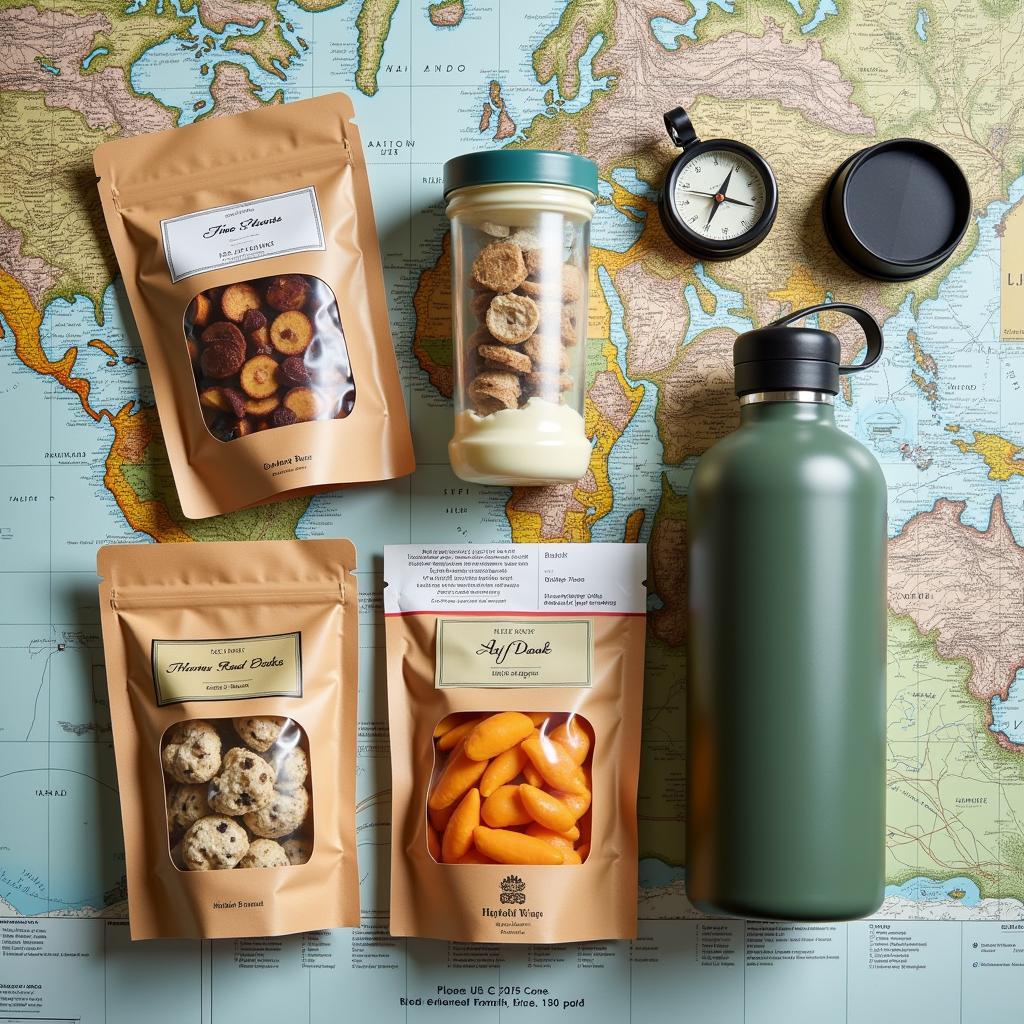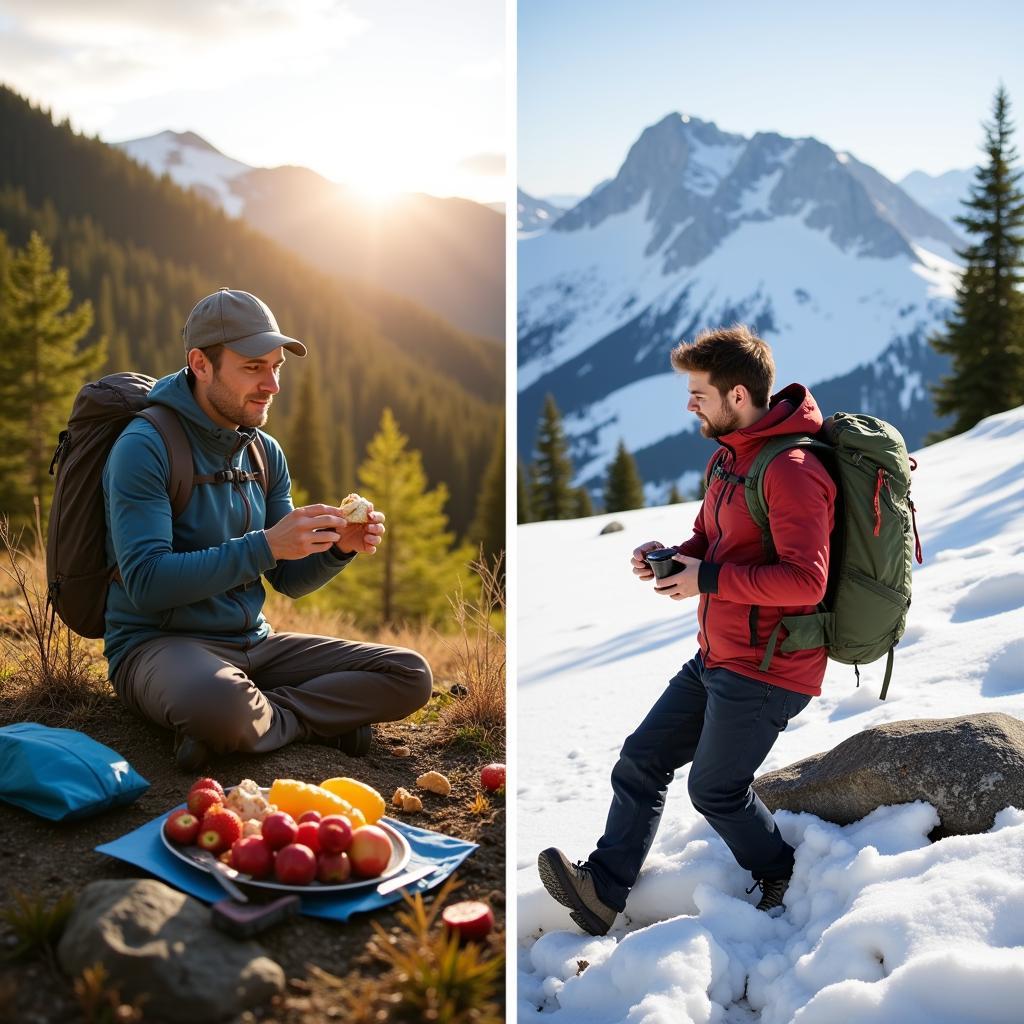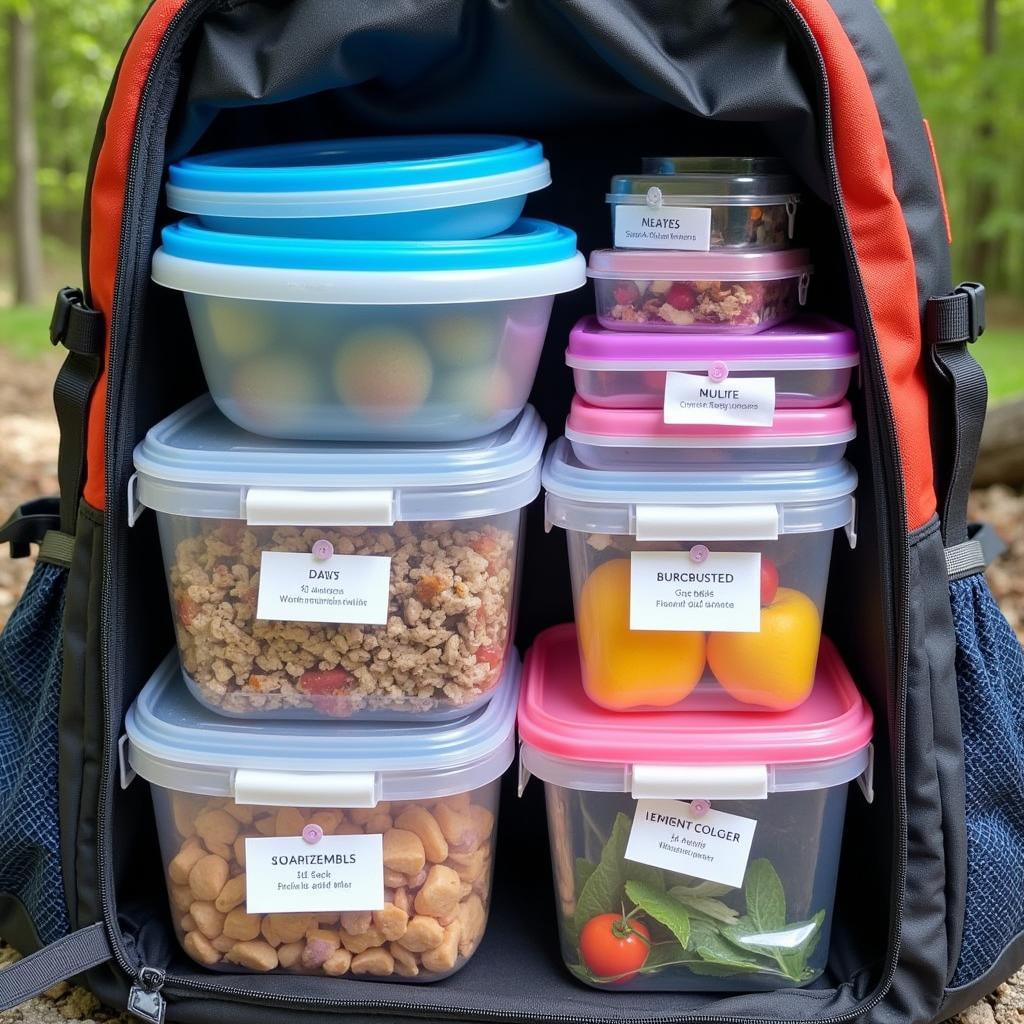For outdoor enthusiasts, hiking isn’t just an activity; it’s a journey of senses. The crisp air, stunning views, and of course, the energizing food that fuels your adventure. Selecting the right Hiking Food Packs can make or break your experience. This guide dives deep into the essentials of packing sustenance for the trails, ensuring you have the energy to conquer every peak and enjoy every scenic vista.
 Essential Hiking Food Packs
Essential Hiking Food Packs
Factors to Consider When Choosing Hiking Food Packs
While the allure of pre-packaged meals is undeniable, curating your own hiking food packs allows for personalization and caters to dietary needs and preferences.
Duration and Intensity of Your Hike
A leisurely day trip demands different fuel than a multi-day trek through challenging terrain. The longer and more strenuous the hike, the higher your caloric needs.
Expert Insight: “Many novice hikers underestimate their energy expenditure,” says renowned wilderness guide, Sarah Jones. “Packing extra snacks, like trail mix and energy bars, can provide that much-needed boost during challenging ascents or unexpected delays.”
Weather Conditions
Extreme temperatures can impact the longevity and palatability of your food. Opt for shelf-stable options for warmer conditions and consider dehydrated meals for colder climates.
 Food Choices for Different Weather Conditions While Hiking
Food Choices for Different Weather Conditions While Hiking
Weight and Packability
Every ounce counts, especially on extended hikes. Prioritize lightweight, compact foods that offer maximum calorie-to-weight ratio.
Dietary Requirements and Preferences
Allergies, intolerances, and personal preferences shouldn’t be compromised on the trail. Carefully choose foods that meet your dietary needs and cater to your taste buds.
Building Your Ideal Hiking Food Packs
Creating your own hiking food packs is an art that balances nutrition, practicality, and a touch of culinary creativity.
Essential Components
- Carbohydrates: The primary fuel source for your muscles. Opt for complex carbohydrates like whole grains, oats, and quinoa.
- Protein: Aids in muscle recovery and satiety. Nuts, seeds, jerky, and protein bars are excellent choices.
- Healthy Fats: Provide sustained energy and help absorb vitamins. Avocado, nut butter, and olive oil are good sources.
- Fruits and Vegetables: Rich in vitamins, minerals, and fiber. Choose durable options like apples, oranges, carrots, and bell peppers.
Meal Planning and Recipes
- Breakfast: Fuel your day with oatmeal, granola, or dehydrated breakfast burritos.
- Lunch: Keep it light and refreshing with sandwiches, wraps, or salads.
- Dinner: Replenish your energy with pasta, rice dishes, or hearty soups.
 Organizing Food for Hiking
Organizing Food for Hiking
Tip: Pre-portioning your meals into reusable containers or zip-lock bags can save space and streamline your meal preparation on the trail.
Staying Safe with Hiking Food Packs
- Proper Food Storage: Use airtight containers to prevent spills and keep critters at bay.
- Leave No Trace: Pack out all trash, including food scraps and packaging.
- Water Safety: Always purify water from natural sources before consumption.
Conclusion
Choosing the perfect hiking food packs is an integral part of planning a successful and enjoyable adventure. By prioritizing your nutritional needs, packing efficiently, and adhering to safety guidelines, you can savor every moment on the trails, knowing you have the energy and sustenance to conquer any challenge. Remember, the right hiking food packs aren’t just about sustenance; they are about enhancing your connection with nature and creating lasting memories.
If you need help choosing the right gear, don’t hesitate to reach out! Give us a call at 02437655121, send an email to [email protected], or visit us at 3PGH+8R9, ĐT70A, thôn Trung, Bắc Từ Liêm, Hà Nội, Việt Nam. We have a 24/7 customer support team ready to assist you.